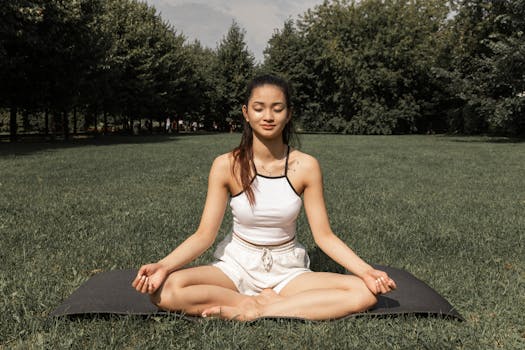Embracing a Balanced Lifestyle: Tips for a Healthier You
Takeaways:
- Understanding the importance of balance in daily routines.
- Implementing practical self-care and wellness strategies.
- Creating a space for mindfulness and productivity in your life.
- Recognizing the need for social connections and support.
- Embracing change and adapting to new challenges.
In today’s fast-paced world, maintaining a balanced lifestyle can often feel like an elusive goal. However, with the right strategies and mindset, anyone can cultivate a lifestyle that promotes health, happiness, and productivity. This guide will explore essential aspects of a balanced lifestyle, providing you with actionable tips to implement in your daily routine.
Understanding the Concept of a Balanced Lifestyle
What Does a Balanced Lifestyle Mean?

The Importance of Balance
Balance is crucial for maintaining good health and preventing burnout. When we focus too heavily on one aspect of our lives—such as work or social obligations—we can become overwhelmed and stressed. Striving for balance helps to mitigate these feelings, promoting resilience and stability in our lives.
Common Myths About Balance
Many people believe that achieving balance means equal time for all activities, which is not necessarily true. Balance is subjective and varies from person to person. It’s about aligning your priorities with your values, ensuring that you devote time to what truly matters to you.
Implementing Self-Care Strategies
The Role of Self-Care in a Balanced Life

Types of Self-Care Practices
- Physical Self-Care: This includes activities that improve physical health, such as exercise, nutrition, and sleep.
- Emotional Self-Care: Engage in activities that help you process emotions, such as journaling or therapy.
- Social Self-Care: Prioritize relationships that uplift you and create a support network.
- Spiritual Self-Care: Explore practices that connect you to your beliefs or values, such as meditation or time in nature.
Creating a Self-Care Routine
Establishing a self-care routine helps integrate these practices into your daily life. Start by identifying activities that resonate with you, and schedule time for them. Consistency is key to reaping the benefits of self-care.
Mindfulness and Its Impact on Lifestyle
Understanding Mindfulness

Benefits of Mindfulness
- Reduces stress and anxiety.
- Enhances emotional regulation.
- Improves concentration and productivity.
- Promotes overall mental well-being.
Incorporating Mindfulness into Daily Life
Incorporating mindfulness doesn’t require extensive time or resources. Simple practices like mindful breathing, meditation, or even mindful eating can significantly impact your lifestyle. Start small, and gradually build your mindfulness practice.
Boosting Productivity and Managing Time
Understanding Productivity
Productivity is about working efficiently and effectively. It’s not just about getting more done but ensuring that the work aligns with your goals and values.
Time Management Techniques
- Prioritization: Use tools like the Eisenhower Box to prioritize tasks based on urgency and importance.
- Time Blocking: Allocate specific blocks of time for different activities to maintain focus.
- The Pomodoro Technique: Work in short bursts (25 minutes) followed by a break to enhance focus.
Creating a Productive Environment
Your environment plays a significant role in your productivity. Organize your workspace to minimize distractions, and consider decluttering to promote a sense of calm and focus.
The Role of Nutrition in a Balanced Lifestyle
Understanding Nutritional Needs

Building a Healthy Eating Plan
- Incorporate a variety of fruits and vegetables.
- Choose whole grains over refined grains.
- Include lean proteins and healthy fats.
- Stay hydrated by drinking plenty of water.
Mindful Eating Practices
Mindful eating involves paying attention to your eating experience, recognizing hunger and satiety cues, and savoring each bite. This practice can improve your relationship with food and encourage healthier choices.
Social Connections and Community
The Importance of Social Well-Being

Building Meaningful Relationships
- Invest time in nurturing existing relationships.
- Seek opportunities to meet new people through hobbies or community events.
- Practice open communication and vulnerability to deepen connections.
Finding Community Support
Engaging with your community can provide a sense of purpose and belonging. Volunteer, join clubs, or participate in local events to build connections and contribute positively to your surroundings.
Adapting to Change and Challenges
The Nature of Change

Strategies for Managing Change
- Practice flexibility and open-mindedness.
- Seek support from friends and family during transitions.
- Focus on what you can control and let go of what you cannot.
Building Resilience
Resilience is the ability to bounce back from adversity. Cultivating resilience involves developing a growth mindset, practicing self-compassion, and maintaining a strong support network.
Conclusion

FAQs
What is a balanced lifestyle?

How can I start practicing self-care?
Begin by identifying activities that nurture you, such as exercise, reading, or spending time with loved ones, and schedule regular time for these practices.
What are some mindfulness practices I can try?
Simple mindfulness practices include mindful breathing, meditation, and mindful eating. Start with just a few minutes each day and gradually increase the duration.
How do I manage my time effectively?
Utilize time management techniques like prioritization, time blocking, and the Pomodoro Technique to organize your tasks and maintain focus.
Why are social connections important?
Strong social connections provide emotional support, enhance feelings of belonging, and contribute to overall happiness and well-being.
Sources
- Healthline: The Importance of Self-Care
- Psychology Today: Understanding Mindfulness
- Forbes: Time Management Techniques for Remote Work






